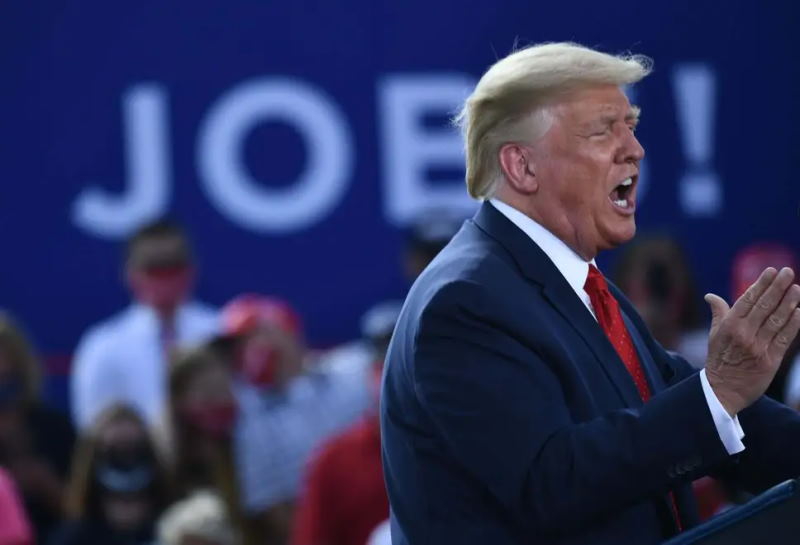Trump pushes back against the Constitution

It is hardly surprising that President-elect Trump insisted on his party allowing him to make recess appointments. It would enable his less favored Cabinet nominees, including the Matt Gaetz, to circumvent the standard Senate confirmation procedure. The editorial board of the Journal characterized Mr. Trump’s recess-appointment strategy as not merely “unconstitutional” but rather “anti-constitutional.” The board appropriately observed that while this plan could be executed in accordance with the Constitution’s wording, it would undermine the system of checks and balances that is fundamental to the constitutional framework.
The allocation of authority across the various branches of government is essential. The Constitution serves as the primary mechanism to avert tyranny, a concept articulated by James Madison in Federalist No. 47 as the “accumulation of all powers, legislative, executive, and judiciary, in the same hands.” In the last fortnight, Mr. Trump has unveiled a succession of initiatives—including the recess-appointment strategy—suggesting a desire to expand presidential authority beyond that of any peacetime leader in American history. The critical inquiry revolves around the potential for the legislative and judicial branches to mount a resistance. Madison posited that the inherent characteristics of human nature would prompt officials across various institutions to oppose intrusions by their counterparts. In Federalist No. 51, it was posited that the Constitution necessitates a system where “ambition must be made to counteract ambition.” Senators would uphold the authority of their institution, as would all other entities within the federal government.
The prerogatives encompass the establishment of the executive branch, which is founded on legislation passed by Congress and ratified by the president. Cabinet departments embody a dual nature, functioning both as executive entities and possessing legislative characteristics. Officials occupy these positions not merely to execute the president’s directives. The inquiry at hand is whether the current polarized party system has irreparably undermined the Madisonian framework. The current political framework frequently sees legislators prioritizing their allegiance to the president, resulting in a neglect of their constitutional responsibilities. Consequently, those lawmakers who advocate for adherence to constitutional principles often face repercussions from the electorate.
The Senate’s role in providing advice and consent is essential for maintaining the equilibrium of power within the government structure. The prospective Senate Majority Leader John Thune, alongside his Republican colleagues, faces a pivotal decision: to relinquish their influence by consenting to adjournment, thereby allowing Mr. Trump to proceed with his appointments unimpeded by their approval. Such an action would represent a regrettable lapse and a move towards unrestrained executive authority. Mr. Trump’s ambitions extend beyond mere dominance in appointment processes. Reliable sources indicate that he seeks to circumvent Congress’s fiscal authority by impounding—essentially, withholding—funds allocated for designated uses. He might request Congress to annul a 1974 statute that forbids impoundment. Should Congress decline to act, he might proceed to impound funds regardless and contend in court that the 1974 statute is unconstitutional.
The issue is poised to ultimately reach the Supreme Court. For Mr. Trump to succeed in that arena, the court would need to go beyond merely declaring the 1974 act unconstitutional. Additionally, it would necessitate overturning Train v. City of New York (1975), which determined that impoundment is unlawful unless explicitly sanctioned by the relevant legislation. The question of whether the court will endorse this broadening of presidential authority remains open. However, following this summer’s Trump v. U.S. ruling, where the court established an expansive doctrine of presidential immunity based on the nuanced interpretations of the Constitution, the realm of possibilities appears limitless.
This leads us to the third aspect of Mr. Trump’s consolidation of power: his endeavor to assert direct authority over the U.S. military. The president-elect is said to be contemplating an executive order aimed at expediting the dismissal of generals and admirals deemed to be deficient in essential leadership attributes. The meaning of this phrase remains ambiguous; however, it should be interpreted within the framework of Mr. Trump’s commitment to dismiss “woke” military leaders.
Should Mr. Trump pursue this course of action, he is likely to encounter significant legal challenges. While it is common for senior officers confronted with presidential disapproval to tender their resignations, they do possess alternatives should they choose to resist. The legislation forbids the dismissal of commissioned officers unless it is executed by a “sentence of a general court-martial,” as a “commutation of a sentence of a general court-martial,” or “in time of war, by order of the president.” Furthermore, a commissioned officer who contends that his dismissal was unjust has the entitlement to pursue a trial by court-martial, which could determine the dismissal to be unfounded.
In the military, as in other spheres, the president-elect seeks to appoint officials who demonstrate personal loyalty to him. While such considerations may hold significance for a family enterprise, they are decidedly unsuitable for the U.S. government. The primary allegiance of every official lies with the Constitution and the rule of law, a tenet that constrains the methods a president may appropriately employ to fulfill his objectives. Mr. Trump seems ready to circumvent the Constitution, and we are about to discover if the other branches of government will acquiesce to his approach.










